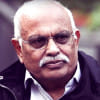The publishing journey for young writers

During a discussion at ULAB on November 12, 2022, Associate Professor Sudeep Chakravarti of South Asian Studies said, "The world of books revolves around the Ekushey Boi Mela."
This sentiment has proven true time and again — as with the COVID-19 pandemic, we have seen a major decrease in not just the number of books being published per year, but also in the profits made by publishing houses. This struggle has meant that a publishing scene that was already difficult to traverse for young authors has become even less accepting.
Tawsif Mahmud, author of Poetry and Poison (Worthy Publications, 2023), spoke at length regarding the hurdles he had to face in his journey to becoming a published author. The publishing process is long and, while self-publishing might seem like a potential alternative to having to contact numerous publishing houses, the reality of self-publishing can often be much worse. For Tawsif, the journey of self-publishing his book halted when the bureaucracy of obtaining an International Standard Book Number (ISBN) stared him in the face. He says, "My editor and I wanted to publish the book by ourselves but you can't get your ISBN if you're self-publishing. Which is why we had to turn to Worthy."
To understand the publishing process from the inside, we talked to Worthy Publications and Bengal Publications. According to Nuzaimul Hoq Jishan, co-founder of Worthy Books, publishing houses in Bangladesh are uninterested in taking on the works of previously unpublished authors. He says, "We wanted to provide a platform for emerging writers to tell their stories. How can you start as a writer if you're not given a chance?"
One other hurdle presented to these young authors comes in the form of finances. From what we have learned, publishing houses in Bangladesh ask the author for the money for printing per copy instead of simply charging a service fee as most international publishers do. This means that young authors, most of whom are working under a tight budget, have to pay a sizeable amount upfront.
The case is different for Bengal Publications. "Unlike most other publishing houses, we pay the authors on a royalty basis. Authors aren't expected to finance anything," states Md Abdur Razzaq, the publications manager of Bengal. "We want to be able to provide a platform to young writers whose talents might otherwise go unrecognised because of the monetary barrier."
Aqueb Safwan Jaser, the author of Mad Noiseless Crescendos (Worthy Publications, 2023) and The Fresh Graduate (Worthy Publications, 2023), faced many similar hurdles on his journey to getting published. He shares, "As a new writer with no networking skills, it was difficult to get in touch with publishers but I kept on trying and eventually succeeded."
The unwelcome publishing environment can be disheartening for most. However, it is not always a battle entirely lost. An alternative way to find success as a writer, for some, has been to connect with arts and culture centres like Goethe Institute or Alliance Française. For Aahir Mrittika, author of The Unforgiving City and I (Bengal Publications, 2022), her time spent at Goethe Institute played a crucial role in seeing her published as a poet. "Goethe's network helped a lot in finding publishers," she says, adding that, at the time, only a handful of publishers seemed interested in a first-time author writing in English.
Another side to this that ought to be highlighted is the importance of community. For Rifah Tashfia, the author of These Little Voices (Worthy Publications, 2023), having a prominent 'bookstagram' presence allowed her to gain the confidence and support required to publish a book. "Having a social media presence helps in maintaining an audience who can create anticipation or provide feedback, which has helped me out a lot." A large social following can also act as a tool for connecting writers with publishers as they are more likely to be reciprocal to your inquiries.
When you start out as a writer, you might think the actual writing aspect of it will be your biggest challenge. However, that is only the tip of the iceberg. The path to being published is no doubt an arduous one – and it might even seem pointless to have a book published at all given that there is only a slight chance you will end up reaping financial benefits out of it. It is important to note, however, that your first book is merely the beginning of an adventure. As Aqueb puts it, "The key to success is to not lose hope."
Reference:
"What ails Bangladesh's publishing industry?" The Daily Star (November 26, 2022)
Adrita and Raian are, unfortunately, students.

 For all latest news, follow The Daily Star's Google News channel.
For all latest news, follow The Daily Star's Google News channel. 








Comments